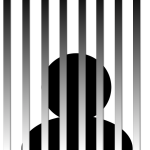Dismissed and discharged.
In a bankruptcy case, these two terms are at the opposite ends of the scale of results in bankruptcy.
Yet they are often confused.
A discharge is a win! The bankruptcy discharge order wipes out your personal legal liability to pay a debt.
A dismissal is usually a loss. It means the bankruptcy case was closed before a discharge was entered.
Bankruptcy discharge rocks
A bankruptcy discharge is the legal order that your unsecured debts are hereafter unenforceable. Your legal obligation to pay is wiped out.
Note that some unsecured debts, like recent taxes and family support can’t be discharged.
And liens that have attached to things you own when you file pass through the bankruptcy unaltered. But those liens don’t attach to assets you acquire after the underlying debt is discharged. Even if the lien survives, the only thing the creditor can do to get its money is to levy or foreclose the asset. They can’t sue you.
When bankruptcies are dismissed
A dismissal could be at the request of the debtor when bankruptcy protection or a discharge is no longer needed.
Sometimes, we file a Chapter 13 to buy enough time to complete the sale of an endangered home. Once the sale is complete, there may be no further need for the automatic stay.
Generally a debtor can’t voluntarily dismiss a Chapter 7 case. The debtor can convert the case to another chapter, but the debtor can’t usually change his mind and escape bankruptcy.
By contrast, the debtor has an almost absolute right to dismiss a Chapter 13 case. That’s why Chapter 13 is my go-to chapter when the situation is fluid or there are major unknowns. If things go really sideways, we can dismiss the case.
More often, dismissal comes on the motion of the trustee or the court, often for failure to timely file a document or for abuse of the system.
But dismissed means that the case has been closed without a discharge.
Closed without a discharge
There’s a third outcome for cases that involves neither discharge nor dismissal: closed without a discharge.
Chapter 13 cases that follow a Chapter 7 too close in time to be entitled to a discharged are “closed” at the completion of the plan. That’s a Chapter 20.
Cases are also closed without a discharge when the debtor fails to complete the required debtor education course that is a condition to a discharge.
Sometimes, having your case closed without a discharge represents a failure: all that effort to file and you failed the last little step to getting rid of your debts.
Sometimes, however, it’s a deliberate strategy to get out of an bankruptcy that was filed untimely, without using up one’s right to a discharge. But that’s a story for another day.
More
Choosing the bankruptcy chapter for you
Can you change lawyers mid stream
Image courtesy of Nemo and Pixabay.






